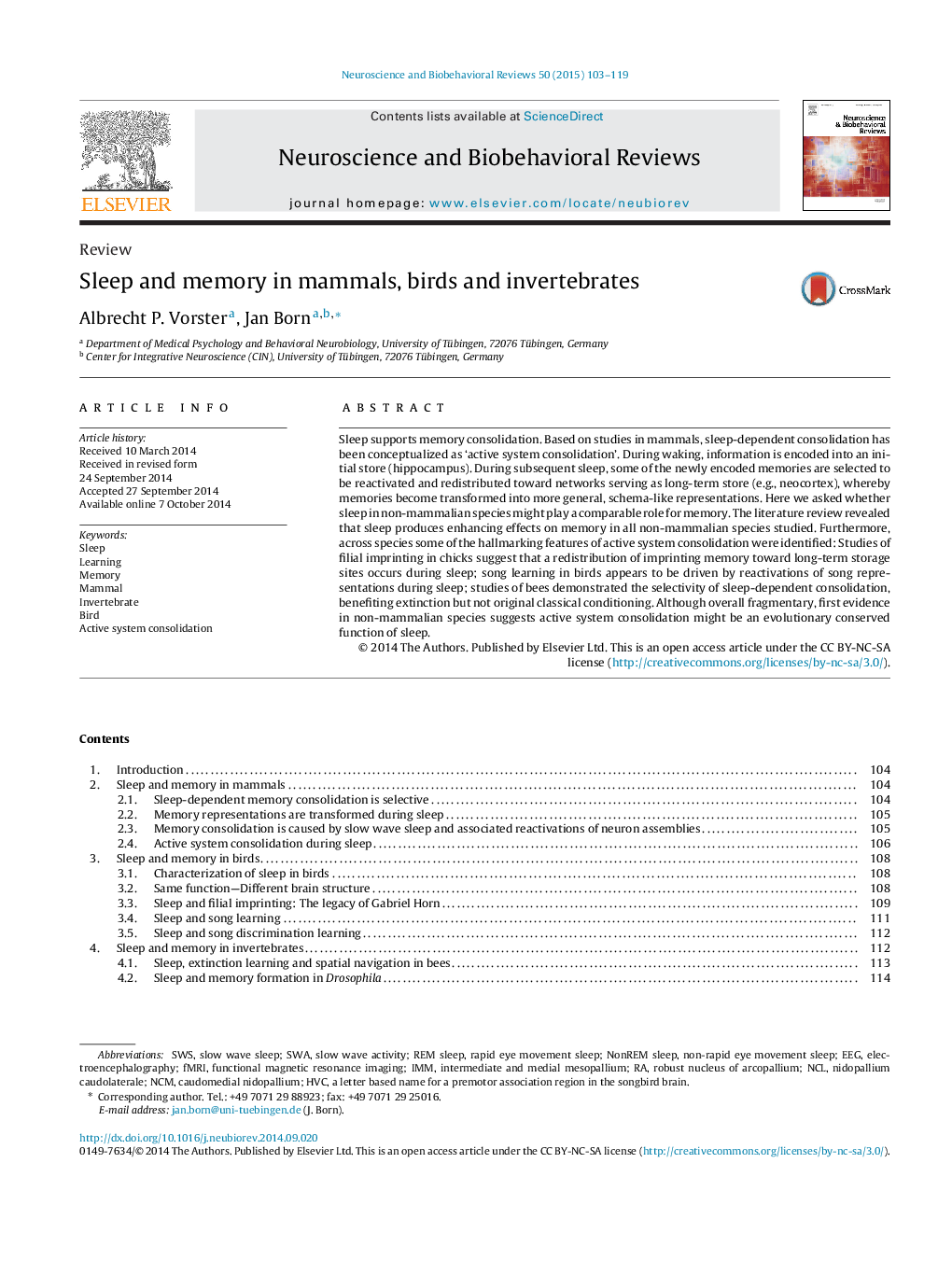| Article ID | Journal | Published Year | Pages | File Type |
|---|---|---|---|---|
| 7303605 | Neuroscience & Biobehavioral Reviews | 2015 | 17 Pages |
Abstract
Sleep supports memory consolidation. Based on studies in mammals, sleep-dependent consolidation has been conceptualized as 'active system consolidation'. During waking, information is encoded into an initial store (hippocampus). During subsequent sleep, some of the newly encoded memories are selected to be reactivated and redistributed toward networks serving as long-term store (e.g., neocortex), whereby memories become transformed into more general, schema-like representations. Here we asked whether sleep in non-mammalian species might play a comparable role for memory. The literature review revealed that sleep produces enhancing effects on memory in all non-mammalian species studied. Furthermore, across species some of the hallmarking features of active system consolidation were identified: Studies of filial imprinting in chicks suggest that a redistribution of imprinting memory toward long-term storage sites occurs during sleep; song learning in birds appears to be driven by reactivations of song representations during sleep; studies of bees demonstrated the selectivity of sleep-dependent consolidation, benefiting extinction but not original classical conditioning. Although overall fragmentary, first evidence in non-mammalian species suggests active system consolidation might be an evolutionary conserved function of sleep.
Keywords
Related Topics
Life Sciences
Neuroscience
Behavioral Neuroscience
Authors
Albrecht P. Vorster, Jan Born,
